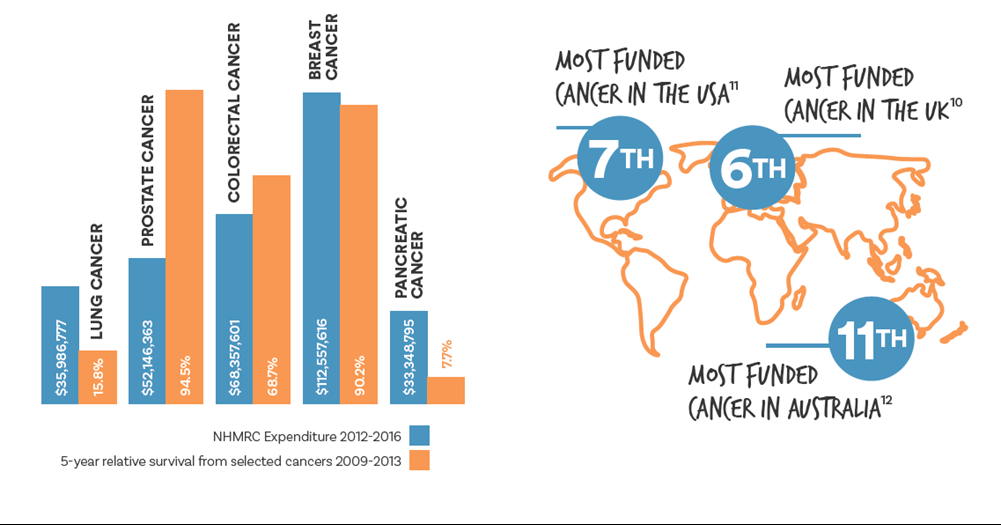The Pancreatic Cancer crisis in Australia
Time: We only have a short window to fight back
Pancreatic Cancer is a devastating disease – it is also incredibly difficult to diagnose early, which creates its own issues. It has no distinct symptoms or clear early warning signs. Therefore, often when a patient is diagnosed, they are close to death. This short duration creates challenges from a research perspective. It means having a cohort or group of patients to study and learn more about the disease from, as well as monitor the value of potential treatments much more difficult. The time factor also prohibits the creation of clinical networks and support systems. Pancreatic Cancer is cruelly and ruthlessly effective.
Treatment: Hard to treat means hard to discover treatments
The less time you have to study a cancer, the harder it is to develop effective treatments, and the clock is cruelly against those with Pancreatic Cancer. The tight window of time has a direct correlation with the availability of treatments, and it’s not just treatments, but early detection too, there is currently no early detection test for Pancreatic Cancer. It is also a devilishly determined disease. Recent advances in types of therapy that have had a transformative effect on other cancers, have yet to show any promise in Pancreatic Cancer. This lack of treatment fails patients – but it is within a system of funding and public policy that this has been allowed to take place.

 Pancreatic Cancer receives the lowest research funding from the NHMRC out of the top 5 cancers
Pancreatic Cancer receives the lowest research funding from the NHMRC out of the top 5 cancers
Traction: Out of sight, out of mind
The low visibility of Pancreatic Cancer, thanks in no small part to its destructive efficacy, has led to a lack of public knowledge, public funding and research into this condition. It is therefore harder for the broad research community, and by extension the pharmaceutical industry, to invest time and research into Pancreatic Cancer. While there is a dedicated core group of researchers seeking to understand more about the disease, more must be done to encourage research, back translation and support current patients.
Pancreatic Cancer receives the lowest research funding from the NHMRC out of the top 5 cancers by mortality despite the shockingly low levels of survival. It is this disparity, the Avner Foundation feels shows Pancreatic Cancer research and support is not just a health issue, but one of equity and fairness. A high death rate should not equal low funding, and now is the time for government to focus on this national tragedy.
The Federal Government has powers to dramatically change the future for these patients. This is why we are calling on government to allocate $52 million over five years, so that we can make survival possible, and pull the disease out of the ‘too hard’ pile it has sat on top of for four decades.
Our comprehensive report "The Cancer of our Generation - A plan for action" can be downloaded here.



